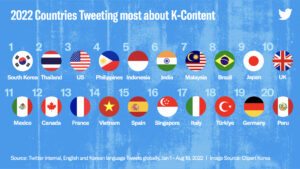Growth may surpass target this year

THE PHILIPPINE ECONOMY likely saw strong growth in the fourth quarter, putting it on track to surpass the government’s full-year target, Socioeconomic Planning Secretary Arsenio M. Balisacan said on Monday.
“I think given the indications that we are seeing in the fourth quarter, it’s likely that we are going to exceed (the full-year target of 6.5-7.5%). We expect to see a robust growth in the fourth quarter,” he said at a briefing in Pasig City.
In the third quarter, gross domestic product (GDP) expanded by a better-than-expected 7.6%, bringing the nine-month average to 7.7%.
Mr. Balisacan earlier said GDP needs only to grow by 3.3-6.9% in the fourth quarter to achieve the full-year target.
Consumption, as well as more investments in construction, utilities, and mining, and increased productivity in agriculture, likely drove strong growth this year, he added.
The National Economic and Development Authority (NEDA) chief said GDP expansion would have been faster if not for rising inflation this year.
Headline inflation rose to a 14-year high of 8% in November, from 7.7% in October. For the 11-month period, inflation averaged 5.6%.
“But obviously in response to that inflation, our monetary authorities had to raise interest rates and the impact of that will be felt next year and will be felt even the year after,” Mr. Balisacan said.
The Bangko Sentral ng Pilipinas has raised its benchmark interest rate last week by 50 basis points (bps) to 5.5%. This brought the policy rate to the highest since November 2008 when it was at 6%.
Since May, the central bank has increased borrowing costs by a total of 350 bps.
For next year, Mr. Balisacan said the likely recession in major economies, persistent inflation, and the impact of BSP’s monetary tightening, may slow the Philippine economy’s growth.
The Development Budget Coordination Committee (DBCC) earlier this month revised its growth target for 2023 to 6-7%, a narrower range compared with 6.5-8%, previously.
“Despite the headwinds we face, the economic team of the Marcos administration remains confident of our prospects in the near term. A robust domestic economy, propelled by sustained consumption and investment, will be key to attaining the 6-7% growth target for 2023,” Mr. Balisacan said.
Meanwhile, NEDA said the Philippine Development Plan (PDP) 2023-2028 will address short-term issues and medium-term constraints to growth.
The NEDA Board, chaired by President Ferdinand R. Marcos, Jr., approved the PDP on Dec. 16.
Under the PDP, the government seeks to lower the unemployment rate to between 5.3% and 6.4% and bring inflation down to 2.5%-4.5%.
Mr. Balisacan said poverty incidence is also expected to drop to 16.2% in 2023 from 18.1% in 2021.
“The timely adoption of the PDP as the country’s development roadmap shall ensure the alignment of government resources, programs, projects, and activities along with the identified strategies that will enable us to achieve our desired socioeconomic objectives,” Mr. Balisacan said.
“The plan will address short-term issues such as protecting people’s purchasing power, mitigating the socioeconomic scarring in human capital, and ensuring that vulnerable population segments are provided targeted assistance,” he added.
Full of details of the PDP will be published by yearend.
MAHARLIKAMeanwhile, Mr. Balisacan urged the Senate to act on the proposed bill creating the Maharlika Investment Fund (MIF) “the earlier the better,” saying that it could support the newly approved socioeconomic development plan of the country.
“The Maharlika Investment Fund is just another source of funds that will support our priorities, particularly investment priorities, and we see the Maharlika as another vehicle for sources of funds and investments,” he said.
He added that the MIF would be another source of financing for the government’s major infrastructure projects, such as the official development assistance, public private partnerships and national budget.
“The more vehicles you have, the better,” he said. “That will ensure that we can ramp up, not only the infrastructure, but even the other development priorities of the government.”
Last week, the House of Representatives approved on third and final reading the bill creating the MIF just over two weeks after it was filed by Speaker Ferdinand Martin G. Romualdez. — Keisha B. Ta-asan




